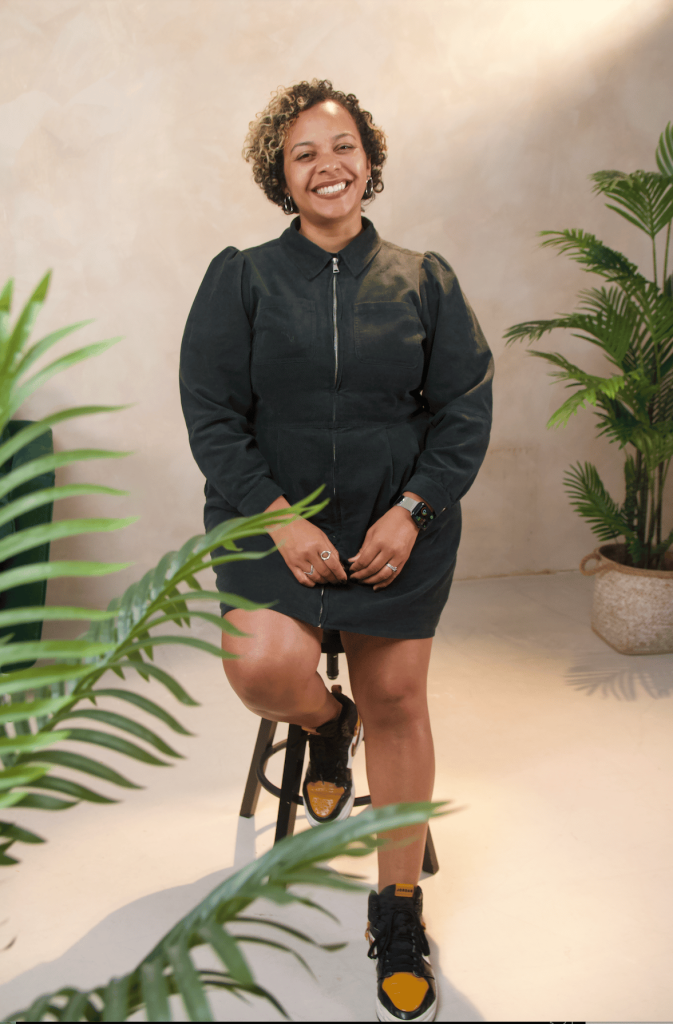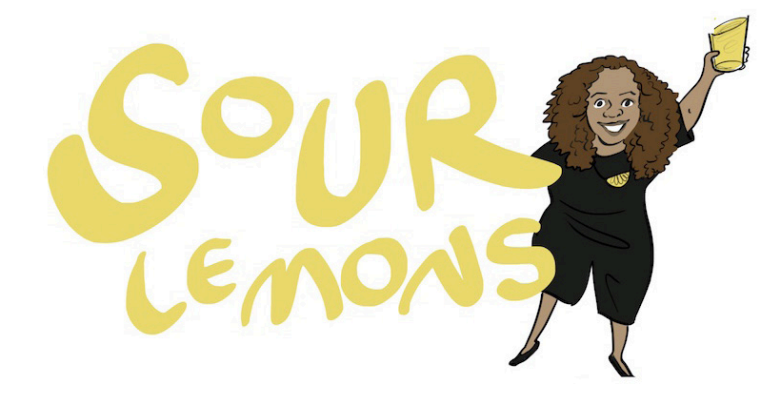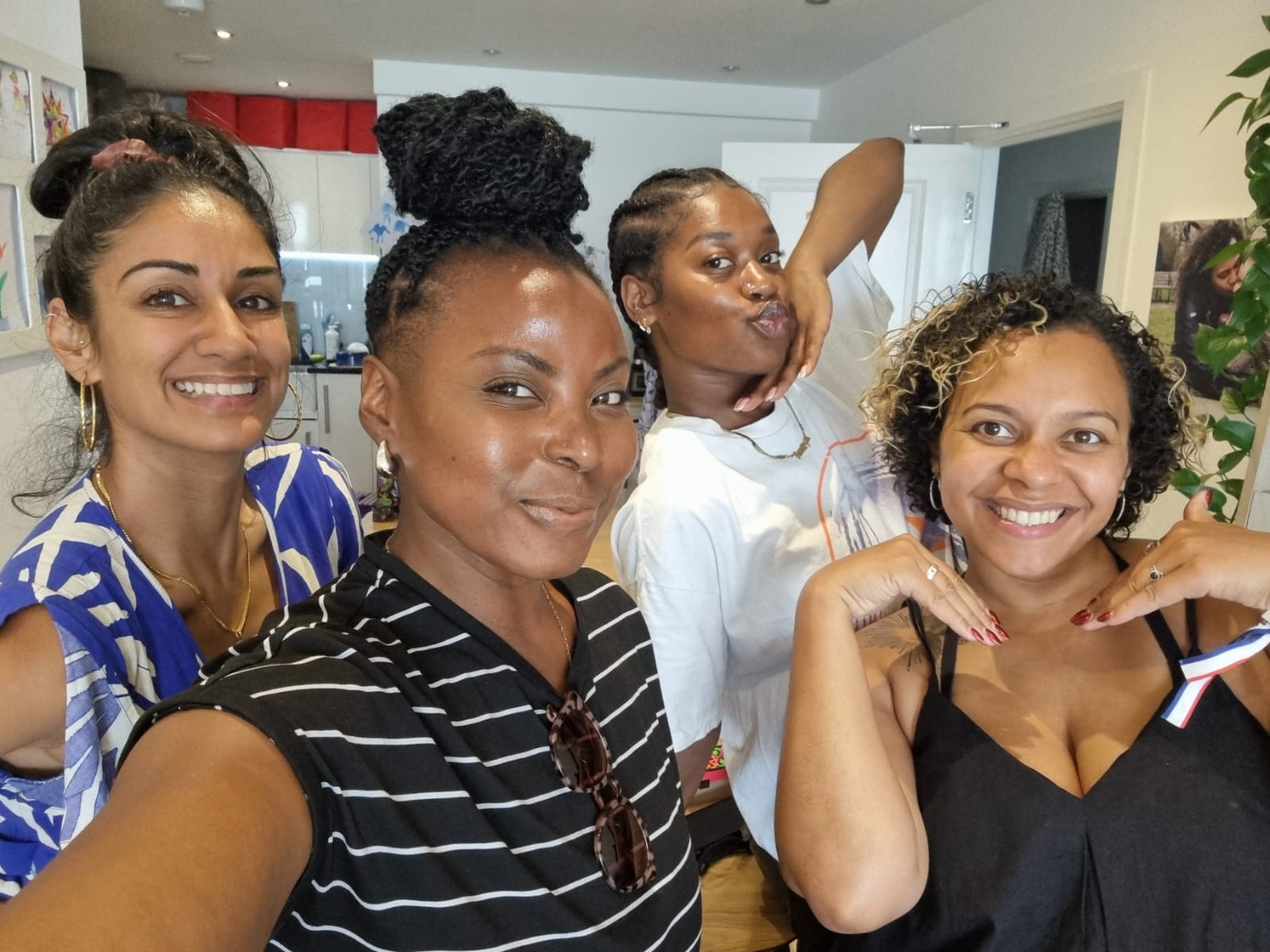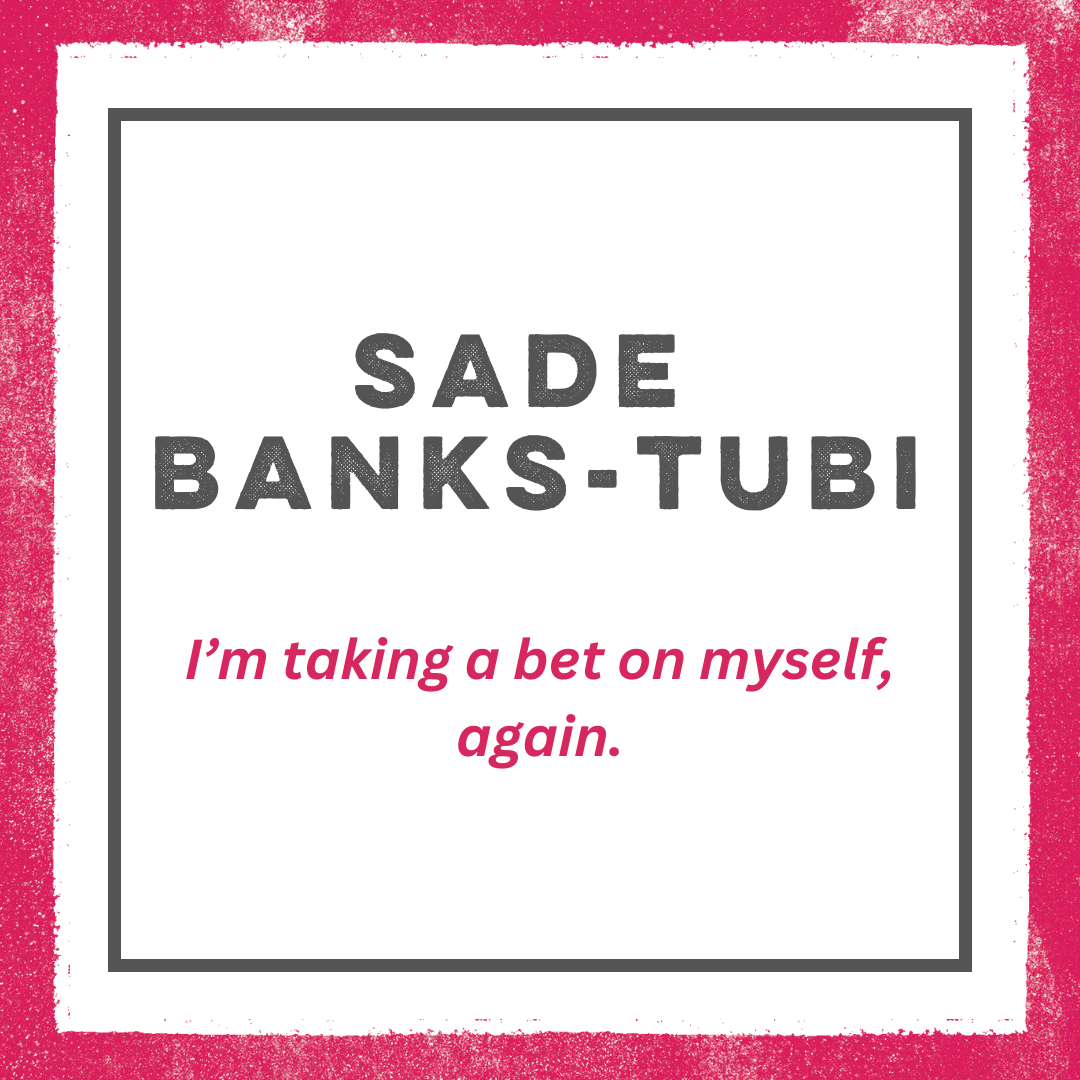I’m taking a bet on myself again
At a time when DEI is being watered down, hacked apart, and destroyed at every opportunity… When companies are slashing training budgets, pulling investment from people, and actively reversing promises made in 2020 to tackle systemic racism… When far-right ideologies of othering are becoming bolder and more normalised by the day…
I’m re-launching The What If Experiment and opening our offer to anyone who wants to learn how to create working cultures where everyone belongs. And here’s why:
Betting on myself always paid off
I’ve always backed myself against the odds – and I’ve consistently won.
At 14, after 80 exclusions and two permanent ones, I ended up in a Pupil Referral Unit. Teachers told me over and over that I’d end up dead, in prison, or pregnant on a council estate – that basically I wasn’t going anywhere in life so I may as well give up. I dropped out of school and left home for a year to hustle. Then I decided to bet on myself — I went back for my final year and walked away with 11 GCSEs, A*–C, in. Just. One. Year.
At 18, I joined the Lyric Hammersmith as a Producer. The week before I started, I overheard someone I respected tell others in the industry that the Lyric had “gone mad” hiring a child. Despite the imposter syndrome pulsing through me, I pitched a talent development programme. I’d never even read a strategy before, but I knew young people like me — Black, Brown, working class — needed space, time, and money to grow without the constant pressure of hustling. That programme, The Next Generation, still exists today. In its very first year, we unintentionally reached 800 young creatives: 50% female, 53% Black or Global Majority – because I intrinsically knew what it felt like to be overlooked, and what it meant when someone finally took a chance on you.
At 24, six weeks pregnant with my first child, I walked away from a secure job at the Barbican to launch my first solo venture, Sour Lemons. Around the same time, I’d just received a rejection letter from the Arts Council telling me my offer was “unfocused” — that I needed to choose between working-class or Black young people. Focusing on both, they said, was confusing. But I knew in my bones that both could be true. That the double compound of racism and classism hits even harder when you live in the middle.

So, I bet on myself again. I built a space for young leaders like me — tired of fighting for scraps. And it worked. Because I knew: if no one was willing to give us a seat at the table, then we had to build our own.

When the Lemon Became Too Sour
By the end of 2021, I made the hardest business decision of my life: I walked away from Sour Lemons.
It hurt — a lot. This wasn’t just a company, it was my purpose. My identity. I’d spent six years building it from scratch: late nights, early mornings, sacrifice upon sacrifice. And from the outside, we looked like a huge success. Every young leader we supported moved onto something better. We’d won awards and fellowships from Red Bull, Clore and Somerset House, secured funding from Arts Council, National Lottery, UnLtd and Esmée Fairbairn.
In 2020, when the pandemic hit, we became a crisis-response organisation. We transitioned our Making Lemonade programme online so we could keep supporting young leaders, and we launched a new two-year partnership offer for organisations serious about dismantling systemic racism. We had become a commercially successful, social-justice-driven charity, all built on my lived experience of turning sour lemons into lemonade.
From the outside, it looked like I was thriving.
But here’s what most people don’t know: alongside all that, I had just become a single parent and was experiencing severe homelessness (again). In 2020 alone, me and my toddler moved house nine times. I was finishing my Clore Fellowship, navigating a pandemic without a physical village, and pushing organisations to tackle systemic racism while experiencing it myself.
I had built an organisation in my own image — and it consumed me. The pressure to be the “perfect product of success” meant I hid a lot of my own sour lemons. Because if I was the one teaching others to make lemonade, mine had to be sweet AF, right?
The truth is, scaling that fast while carrying personal trauma broke me. And it took a toll on the people working around me too. I was co-dependent on what I’d built and (it felt like) no one else could see it. That perfect image to others looked like Frankenstein to me and I made choices that year that had devastating consequences.
So, at the end of 2021, I walked away. At the time it felt impossible but looking back, it was the only route to freedom. Another chance to bet on myself. And it paid off.

Building The What If Experiment
With the support of a co-founder and close associates, I took what I’d learned and split the work. Sour Lemons stayed with the young leaders and I shifted my focus to the systemic barriers holding them back.
We brought existing partnerships with The Royal Court and The Young Vic with us, launched a new one with the BFI, and built The What If Experiment from scratch. Swapping the iconic yellow for a bold pink, I went underground to focus on the work. And oh, did I mention I was pregnant with my second child too? Yeah, it was a lot!
We kept the offer invite-only — deliberately. I needed space to reimagine the structure, the offer, and the practice. Space to make sure we were living what we preached. Space to experiment and find out if we could genuinely transform organisational cultures into ones that prioritise psychological safety, embrace diversity (not just tick boxes), and hold themselves accountable for building a more just world.
Over the past three years, the team has shifted and grown. Today, we’re stronger than ever — a trio of associates leading with humanity, imagination and joy. They’ve breathed life back into the vision, back into me, and leading alongside them — in the messiness, not despite it — has been one of the greatest honours of my career.
And the work itself? It’s been one giant experiment. Hard, yes. But hopeful too. Proof that oppression isn’t inevitable. It was designed — and so, with intention, it can be redesigned.
Another Bet
So here I am again. Betting on myself. Pregnant with my third child, wondering how to launch something so sacred in a time that feels so hostile. The headlines terrify me: the rise of the far right, the erasure of entire communities, the hoarding of power and resources. Some days, it feels like too much.
And yet — I remember that I am my ancestors’ wildest dreams. Without their fight, I would not be here.
There’s something about growing a human that sharpens your vision. It forces you to see beyond yourself. The fight feels more urgent — even if I won’t live to see the end of it, it will be worth it.
Because the truth is, I don’t have the luxury of waiting. I want a better world for me, for Black and Global Majority people, for all marginalised communities — and for my children, so they don’t inherit the same barriers I’ve had to fight through.
That’s why I’m putting The What If Experiment firmly on the map and opening our offer. Because we need alternatives to systems that are failing us. Because exclusion is being normalised — and belonging must be fought for.
Even if it feels mad to launch belonging in a time of so much othering — we must. Because if we don’t, who will?
If I don’t back me, who will?
So here I am. Refusing to give up. Betting on myself again. I always have. I always will.



